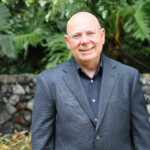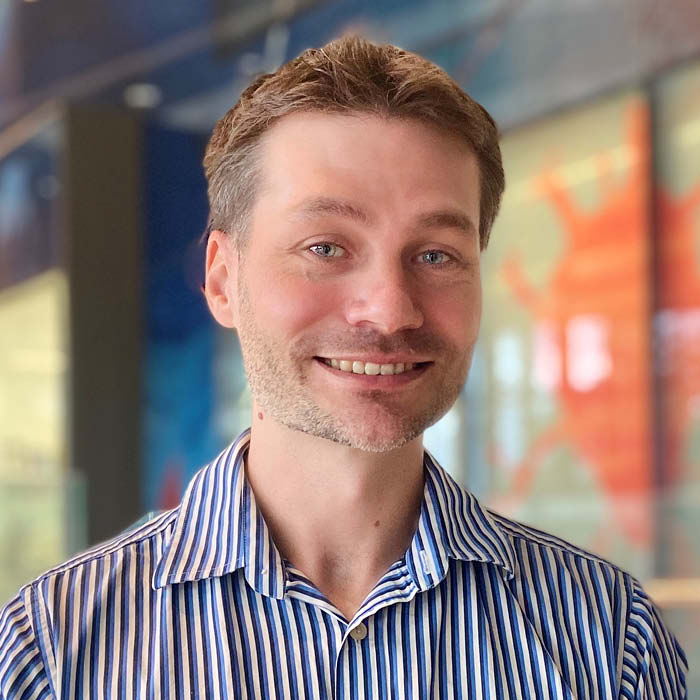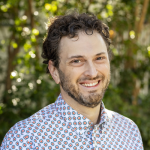Why focus on Psychosis
Mental health disorders rank third after heart disease and cancer as the largest causes of illness related burden in Australia.
However, they represent the largest cause of disability, accounting for nearly 30 per cent of the burden of non-fatal disease.
Approximately 4% of people in Australia will experience psychosis (schizophrenia, bi-polar disorder, related disorders) at some stage in their lives, with schizophrenia alone being the third leading contributor to the burden of disease and injury in Australian males aged 15-24.
In a historic partnership between researchers and the consumer and carer movement in Australia, the Psychosis Australia Trust was established to build on the work of the Australian Psychosis Research Network (APRN) and the Australasian Schizophrenia Conference (ASC). The Mental Illness Fellowship of Australia (MIFA) auspices Psychosis Australia, and provides Secretariat support to the Trustees in their work.
Psychotic disorders drive more than 75% of public mental health services expenditure.
Our Mission
Is to transform the research landscape to improve the lives of people who live with psychosis in partnership with all stakeholders.
Our Values
For reform in the mental health sector to be driven by research that is meaningful to people who live with psychosis.
Our Goals
Review current research programs and activities being carried out in Australia in relation to psychotic disorders, and developing an evidence-based approach to allocating priorities for further research.
Carry out research and research-related activities in relation to psychotic disorders.
Through the organisation’s partnerships link the priorities of researchers with those of
Australians who have the lived experience of psychosis.
Promote and facilitate the translation of research into practice in relation to psychotic
disorders, thus reducing the burden of disease.
Board of Trustees
Rob originally trained as a social worker and has worked in mental health for over 50 years. He has worked in a variety of roles, both within the NSW Health system and in the non government sector including Head Office of the NSW Department of Health as well as hospital and community settings.
Rob led the Schizophrenia Fellowship of NSW for 28 years. During that time it grew from an organisation with one part time worker to one that had services across the state with over 350 staff.
Rob led major developments including the establishment of the Clubhouse Program of psychosocial rehabilitation, Carer Assist, a service for carers of people with a mental illness and Onfire for young carers. He was a member of the NSW Ministerial Mental Health Priority Task Force and is a Member of the NSW Mental Health Tribunal. Rob serves as a Director on a number of Boards including the Central and Eastern Sydney Primary Health Network.
Rob was project director for the development of “The Schizophrenias: guidelines for a holistic approach to schizophrenia” (NSW Health 2001) and author of a number of publications.
He was made a Member of the Order of Australia in 2007 for service to people with a mental illness.
Kerry is the current CEO of Community Mental Health Australia.
She has a lived and living experience as a family member of someone with long-term unsupported distress and a backstory of childhood trauma.
Following a professional career in the private education, and public sectors, including working as a project management consultant at KPMG, a high school teacher, and a strategic advisor for the National Native Title Tribunal.
She has held senior positions within the NDIS, the WA Mental Health Commission, and as a Carer Consultant for North Metro Adult Health Service.
Her other board appointments include Helping Minds, Emerging Minds, the Recovery College of WA and Mental Health Carers Australia.
She is also a graduate of Boston University’s Global Leadership Institute’s Recovery Class of 2013.

For 40 years, Tony Stevenson has been committed to a viable and proactive health and community services sector that works alongside families and individuals to inspire self-confidence and hope.
He has held CEO level positions with some of Australia’s most well-respected not-for-profit organisations as well as executive roles in the Commonwealth and State governments.
Tony is the CEO of Mental Illness Fellowship Australia, where he has advocated for the needs of people living with severe and complex mental health conditions, and their families and friends.
Tony is also a Director on the Board of the Alliance for Leadership Learning and the Policy and Advocacy Committee of RSL Qld.

Justin completed his doctorate in measuring and positively influencing the physical activity patterns of adults with mental illness in 2016.
His work spans research, mental health service and community sectors: He leads a multi-centre randomised controlled trial of interventions to promote physical activity in adults with mental illness, a health service improvement initiative to improve the focus on health and wellbeing of consumers, and implementation of state-wide healthy lifestyle intervention programs for youth and adults recovering from mental illness across Queensland.
He has 22 research publications since 2015 (13 as first author) including two health service reports and one conference proceedings paper summarising his implementation projects and has attracted $1.6M in research and implementation funding from government, philanthropic, and hospital-based schemes.
In acknowledgment of this program of work, he received the 2018 Mental Health Week Achievement Individual Award for improving the quality of life of Queenslanders with mental illness, and the 2020 Australian Rotary Health award for Mental Health Impact.

Zoë has considerable experience in Governance of growing social enterprises and charities.
Zoë previously helped deliver Australia’s first social franchise and Chaired a leading national charity for isolated teenagers.
As a Co-Founder and Exec Director of Happy Paws Happy Hearts, Zoë provides critical insights into fundraising and supporting extremely disadvantaged sections of the Australian population.
Finally, Zoë holds the Entrepreneur In Residence title for the University of Queensland’s Ventures area. She is the first “social” entrepreneur to be backed by the University.

Prof Siskind trained as a psychiatrist in Australia and the United States.
He works clinically as a psychiatrist in Brisbane, Australia with people with treatment refractory schizophrenia.
His research interests include treatment refractory schizophrenia, clozapine and the physical health comorbidities associated with schizophrenia.
He has over 240 publications and over AU$50million in competitive research grants, with over AU$6.5 million as CIA.

With over 30 years of experience bridging government and industry, Stuart has built a career at the intersection of public policy and public health. He has worked across both sectors — translating private sector insights to government, and public policy goals to industry.
As an advocate for better resourcing and smarter policy, he has led national efforts to connect political leaders, public servants, and people with lived experience. He has worked has helped shape a more informed and responsive approach to some of the country’s most pressing health challenges.
Stuart has also partnered closely with the global medicines industry to improve Australians’ access to life-changing therapies.
He is currently writing a book on the pricing of new medicines — how all of the choices we make impact the outcomes we get.

James is a Research Fellow at IMPACT, Deakin University, and a passionate advocate for embedding lived experience within mental health research, services, and systems. Based in Geelong, James leads a team of peer workers at Barwon Health, where he fosters inclusive, person centred growth and champions the unique value of lived experience leadership.
In 2021, James reconnected with his early passion for research, driven by a desire to contribute more deeply to the healing and personal growth of others. His work focuses on transforming mental health care by integrating lived experience perspectives into academic research, clinical settings, and policy. He plays a key role in leading culture change, building communities of people with lived experience and ensuring that research is not only about people but also conducted with and by people with lived experience.
James’s leadership is helping shape a future where lived experience is not an add-on, but a foundation for meaningful mental health reform.
Research Advisory Council
The purpose of the Research Advisory Council is to provide advice to the Psychosis Australia Trustees on matters relating to research into schizophrenia, bipolar disorder and related disorders.
Functions of the Research Advisory Council include:
- Assessing the merits of particular research programs and activities being conducted in Australia;
- Monitoring the progress of any research related activities funded or partially funded by the Trust;
- Making recommendations to the Trustees in relation to providing funding for particular research-related activities or programmes;
- Reporting to the Trustees on the activities and the findings of the Research Advisory Council.
